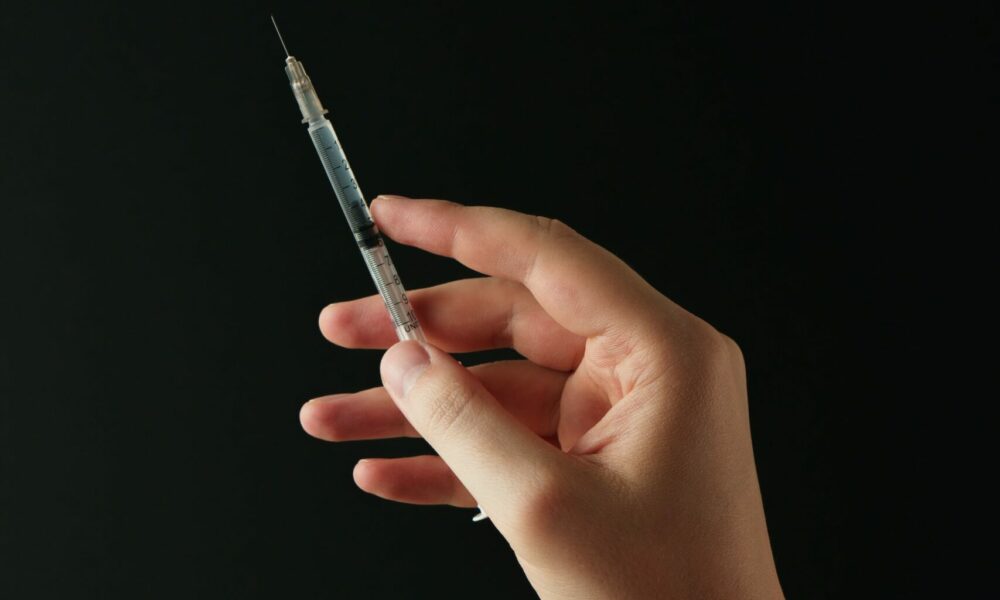A New York Senate committee has approved a bill to authorize the establishment of a state-sanctioned overdose prevention center where people could use currently illicit drugs in a medically supervised environment and receive treatment resources.
The Senate Health Committee passed the harm reduction legislation from Sen. Gustavo Rivera (D) in a voice vote on Tuesday, sending it to the Finance Committee for consideration.
“Harm reduction works. Harm reduction is a modality—a way to approach dealing with an issue which assumes, first, that a person who uses drugs is a person, and that they have to be met where they are,” Rivera said at the hearing. “Fact number two, criminalization has not worked.”
“Over decades of the drug war, it is pretty clear that we have lost said war,” he said. “The notion that we could arrest our way out of addiction—that we could arrest our way out of overdoses and deaths—has been proven to be a lie based on all of these years of experience. Criminalization does not work.”
The legislation that’s advancing would require the state Department of Health to authorize at least one overdose prevention center that provides a sterile environment for people to use pre-obtained substances, with medical personnel on site to prevent overdose deaths and make referrals to treatment.
The facilities would need to also maintain syringe exchange services, educate clients on safe consumption practices, provide naloxone to reverse opioid overdoses and collect aggregate data on participants and their experiences. Staff and participants would be given immunity from prosecution for the sanctioned activities.
“Today, the Senate recognized the dire situation New York is in because of the overdose crisis and failed War on Drugs era policies,” the advocacy group VOCAL-NY said in a press release on Tuesday.
“While @GovKathyHochul refuses to lead New York State at this moment of heightened overdose deaths, the Senate Health Committee decided today that we can’t wait idly as more New Yorkers die from a preventable overdose.” pic.twitter.com/pVG7k0zyor
— VOCAL-NY (@VOCALNewYork) May 23, 2023
“New York is one step closer to seeing Overdose Prevention Centers authorized across the state,” the group’s Users Union leaders said. “The legislature needs to keep the momentum and pass the Safe Consumption Services Act out of both houses by the end of session.”
The Assembly companion version of the bill, sponsored by Assemblymember Linda Rosenthal (D), cleared the chamber’s Health Committee in March.
New York City opened the first city-authorized safe consumption sites in late 2021, and officials have said that they’ve already saved lives.
A study published by the American Medical Association (AMA) last year found that the the New York City facilities have decreased overdose risk, steered people away from using in public and provided other ancillary health services to people who use currently illicit substances.
At the federal level, National Institute on Drug Abuse (NIDA) Director Nora Volkow tacitly endorsed the idea of authorizing safe consumption sites last year, arguing that evidence has effectively demonstrated that the facilities can prevent overdose deaths.
While Volkow has frequently promoted harm reduction policies to treat addiction like a public health issue, her remarks about safe injection facilities stood out, especially as the Justice Department is in active litigation that started after the Trump administration challenged the opening of such a center in Philadelphia.
In recent weeks, Pennsylvania communities groups and Democratic senators have sought to intervene in that case, urging a federal court not to authorize the harm reduction centers.
Last year, DOJ said that it was “evaluating supervised consumption sites, including discussions with state and local regulators about appropriate guardrails for such sites, as part of an overall approach to harm reduction and public safety.”
In October 2021, the U.S. Supreme Court rejected a request to hear a case on the legality of establishing the Safehouse facilities.
In a recent report, congressional researchers highlighted the “uncertainty” of the federal government’s position on safe drug consumption sites, while pointing out that lawmakers could temporarily resolve the issue by advancing an amendment modeled after the one that has allowed medical marijuana laws to be implemented without Justice Department interference.
Rahul Gupta, the White House drug czar, has said that the Biden administration is reviewing broader drug policy harm reduction proposals, including the authorization of supervised consumption sites—and he went so far as to suggest possible decriminalization.
Rhode Island became the first state in the U.S. to legalize a safe drug consumption site pilot program in 2021.
In a pair of setbacks for advocates, Vermont’s governor vetoed a bill last year that would have simply created a working group tasked with crafting a plan to open safe consumption sites and the governor of California vetoed a bill last year to permit a pilot program for the harm reduction centers.
Where Presidential Candidate Tim Scott Stands On Marijuana
Image courtesy of Dima Solomin.
Read the full article here


